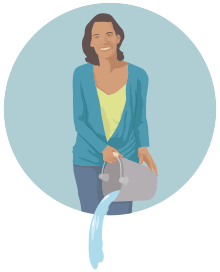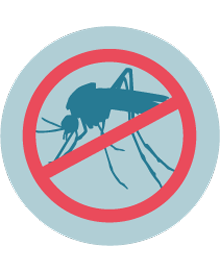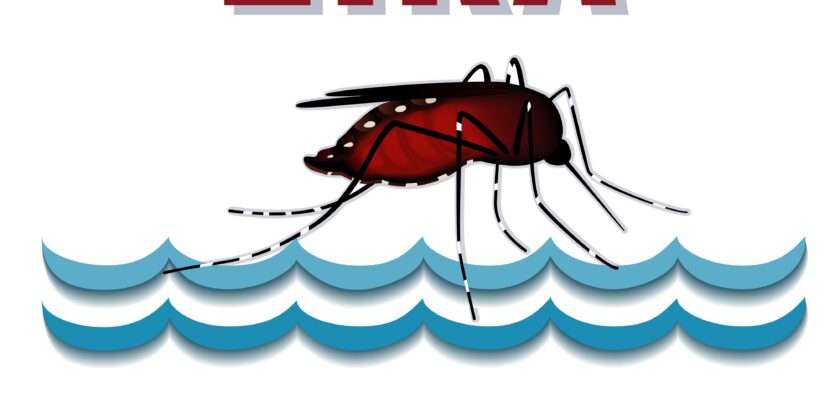Mosquito-borne diseases are among the world’s leading causes of illness and death today. The World Health Organization estimates that more than 300 million clinical cases1 each year are attributable to mosquito-borne illnesses. Despite great strides over the last 50 years, mosquito-borne illnesses continue to pose significant risks to parts of the population in the United States. Jay Harold has written several posts about the Zika Virus, is spread by mosquitoes.
Mark Twain said “Be careful about reading health books. You may die of a misprint.” Trust reliable sources such as the CDC and use common sense! Please don’t travel to countries where Zika virus or other viruses spread by mosquitoes are found! Here’s some information that you need to know about the Zika virus:
- Zika virus is transmitted to people primarily through the bite of an infected Aedes species mosquito.
- These mosquitoes typically lay eggs in and near standing water in things like buckets, bowls, animal dishes, flower pots, and vases.
- These are the same mosquitoes that spread dengue and chikungunya viruses.
- No vaccine exists to prevent Zika virus disease.
Mosquitoes are much more than an irritant! Jay Harold has pooled information from several CDC sources to provide current facts about mosquito prevention.
Control mosquitoes outside your home2
Remove standing water where mosquitoes could lay eggs
- Once a week, empty and scrub, turn over, cover, or throw out any items that hold water like tires, buckets, planters, toys, pools, birdbaths, flowerpot saucers, or trash containers. Mosquitoes lay eggs near water.
- Tightly cover water storage containers (buckets, cisterns, rain barrels) so that mosquitoes cannot get inside to lay eggs.
- For containers without lids, use wire mesh with holes smaller than an adult mosquito.
- Use larvicides to treat large containers of water that will not be used for drinking and cannot be covered or dumped out.
- If you have a septic tank, repair cracks or gaps. Cover open vent or plumbing pipes. Use wire mesh with holes smaller than an adult mosquito.
Kill mosquitoes outside your home
- Use an outdoor insect spray made to kill mosquitoes in areas where they rest.
- Mosquitoes rest in dark, humid areas like under patio furniture, or under the carport or garage. When using insecticides, always follow label instructions.
Control mosquitoes inside your home3
Keep mosquitoes out
- Install or repair and use window and door screens. Do not leave doors propped open.
- Use air conditioning when possible.

Remove standing water where mosquitoes could lay eggs
- Once a week, empty and scrub, turn over, cover, or throw out any items that hold water like vases and flowerpot saucers. Mosquitoes lay eggs near water.
Kill mosquitoes inside your home
- Kill mosquitoes inside your home. Use an indoor insect fogger* or indoor insect spray* to kill mosquitoes and treat areas where they rest. These products work immediately and may need to be reapplied. When using insecticides, always follow label directions. Only using insecticide will not keep your home free of mosquitoes.
- Mosquitoes rest in dark, humid places like under the sink, in closets, under furniture, or in the laundry room.
What You Need to Know About Indoor Spraying
Mosquitoes can spread viruses like West Nile and Zika. They can live inside your home if you don’t have screens on windows and doors to keep them outside. If you have mosquitoes inside your house, spraying an insecticide may reduce the number of mosquitoes and your chances of being bitten by a mosquito infected with a virus.
Select and use indoor insect spray products
Use indoor insect sprays if you don’t have window and door screens.
Indoor insect spray products are available as:
• Foggers or aerosols: These products can be used to kill mosquitoes in the air. WARNING: You and your pets must leave home when foggers or aerosols are used. Cover fish tanks. You can return home after the spray has dried.
• Sprays: These products are applied to surfaces where mosquitoes rest. Mosquitoes die when they come into contact with these surfaces. It is safe for you and your pets to stay inside when sprays are applied. Products work immediately. Some may need to be reapplied. Always follow the product label instructions. Do not apply more product than directed or reapply more often than stated on product label instructions. Once dried, products are unlikely to cause health problems.
Treat areas where mosquitoes rest Mosquitoes rest in cool, dark, humid places inside your home, including in closets, showers, and other enclosed spaces, as well as under sinks, counters, tables, and behind furniture.
Take more steps to control mosquitoes indoors
Indoor spraying alone will not keep your home free of mosquitoes. Follow these additional steps to help reduce mosquitoes inside your home:
- Install or repair window and door screens.
- Use air conditioning when possible
- Once a week, empty and scrub, turn over, cover, or throw out any items that hold water, like vases and flowerpot saucers.
Prefer to hire a pest control professional? Hire a pest control professional to treat your home. The National Pest Management Association offers more than 10 tips on finding a pest management professional at http://www.pestworld.org/pest-control-help.
Protect yourself and your family from mosquito bites
- Use insect repellent: Use an Environmental Protection Agency (EPA)-registered insect repellent with one of the following active ingredients. When used as directed, EPA-registered insect repellents are proven safe and effective, even for pregnant and breastfeeding women.
- DEET
- Picaridin, also known as KBR 3023, Bayrepel, and icaridin
- Oil of lemon eucalyptus (OLE) or para-menthane-diol (PMD)

EPA-registered insect repellents are proven safe and effective.
- IR3535
- 2-undecanone
- Cover up: Wear long-sleeved shirts and long pants.
- Keep mosquitoes outside: Stay in places with air conditioning or that use window and door screens. If you are not able to protect yourself from mosquitoes inside your home or hotel, sleep under a mosquito bed net.
Learn more: Travelers can learn more about mosquito bite prevention in this fact sheet.
Key Points to Remember5
- Ensure adequate protection during times of day when mosquitoes are most active.
- Dengue, yellow fever and chikungunya vector mosquitoes bite mainly from dawn to dusk.
- Malaria, West Nile, and Japanese encephalitis vector mosquitoes bite mainly from dusk to dawn.
- Use common sense. Reapply repellents as protection wanes and mosquitoes start to bite.
Enjoyed this post? Share it and read more here. Jay Harold has put together a Resource page that you may find useful when trying to improve your health and wealth. Please take this advice of Muhammad Ali and give back to others. “Service to others is the rent you pay for your room here on earth.” ~ Muhammad Ali
Bibliography
- https://www.epa.gov/mosquitocontrol/joint-statement-mosquito-control-united-states
- https://www.cdc.gov/zika/prevention/controlling-mosquitoes-at-home.ht
- https://www.cdc.gov/zika/pdfs/indoorspraying-factsheet.pdf
- https://www.cdc.gov/features/stopmosquitoes/
- https://wwwnc.cdc.gov/travel/yellowbook/2016/the-pre-travel-consultation/protection-against-mosquitoes-ticks-other-arthropods




